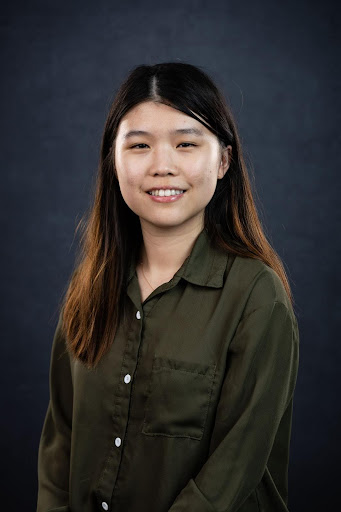My Journey In Pelvic Health as a Student Physical Therapist
Born and raised in China, I first learned about pelvic floor and pelvic health physical therapy (PHPT) during my work as a physical therapy aide in the United States in 2020. The pelvic region, often shrouded in mystery and considered taboo in my cultural context, intrigued me. As my curiosity about PHPT continues to grow through academic and clinical pursuits, I am drawn to its diverse applications and empowering nature.
My formal introduction to PHPT occurred during my first year as a Doctor of Physical Therapy (DPT) student at the University of Southern California (USC) in 2021. In a therapeutic exercise course, a pelvic health physical therapist shared her personal journey and offered insights into exercise prescriptions for pregnant individuals. One poignant story stood out — a patient, initially unable to conceive due to pain with sex, eventually succeeded with the assistance of PHPT. The heartfelt gesture of the patient's husband, who sent flowers to the therapist, underscored the profound impact on the woman and her family. This narrative resonated deeply with me as I aspire to motherhood in the future. I would appreciate a pelvic health physical therapist who can teach me how to properly relax and strengthen my pelvic floor to prepare for and recover from pregnancy. This story has inspired my quest to learn more about PHPT, equipping myself with the knowledge and tools to guide individuals through conception, pregnancy, labor and delivery, and recovery.
Motivated by this transformative experience, I joined the Pelvic Health Extracurricular Group in 2022 to deepen my understanding and learn from esteemed USC faculty members. Two lectures captivated me: one focused on gender-affirming care, and the other revolved around pre- and post-operative rehabilitation for prostatectomy and cystectomy. These sessions illuminated the role of pelvic health physical therapists as coaches and allies in recovery journeys, aiding individuals in regaining continence, achieving satisfaction and comfort in their bodies, and returning to cherished activities post-surgery. Particularly compelling was the revelation of unique needs in underserved populations, propelling my commitment to using PHPT to serve transgender and gender-diverse individuals.
During my second-to-last orthopedic rotation at a hospital-based outpatient clinic in Southern California in 2023, I had the privilege to shadow pelvic health physical therapists for two days. Filled with joy and excitement, I marveled at the wealth of knowledge to absorb and the myriad ways in which PHPT could benefit patients. I witnessed the therapists tailoring their interventions to diverse conditions, such as urinary incontinence, fecal incontinence, pelvic organ prolapse, and low back pain during the third trimester of pregnancy. A noteworthy case involved a young female patient with a complicated medical history and pain during gynecological exams. The therapist coached the patient through dilator training, enabling her to practice pelvic floor muscle stretching independently. The patient progressed from a dilator of size 3 to size 4 and would trial a gynecological exam in the near future, a testament to the empowering nature of PHPT that left a lasting impression on me.
Grateful for the invaluable learning experiences that have shaped my journey, I eagerly anticipate the commencement of my next clinical rotation at a private pelvic health clinic in 2024. This upcoming opportunity will allow me to apply the knowledge acquired from the Pelvic Health Level 1 and Level 2 Pelvic Pain curriculum and serve diverse orthopedic and pelvic health populations, with a particular focus on individuals experiencing pelvic pain or pain during intimacy. Envisioning my future as a pelvic health physical therapist, I am wholeheartedly committed to leveraging the principles of PHPT as a powerful tool, fostering the self-efficacy of each patient on their unique path to recovery.

Author: Yuhang "Doris" Cai, SPT
2023 SPT CAPP Scholarship Recipient
Author Bio: Yuhang "Doris" Cai graduated from the University of California, Los Angeles, in March 2020 with a Bachelor's Degree in Psychobiology and a minor in Food Studies. Doris is a third-year Doctor of Physical Therapy student at the University of Southern California, expected to graduate in May 2024.


